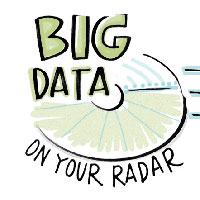I understand big things. Some of my favorite songs exceed 20 minutes. Many of my favorite books push 500 pages. Heat is one of my favorite movies and it clocks in at nearly three hours. Sometimes big ideas just can't be compressed into small packages.
Uncategorized
Last week, Phil Simon blogged about being wary of snake oil salesman who claim to be data scientists. In this post, I want to explore a related concept, namely being wary of thinking that you are performing data science by mimicking what data scientists do.

A new SAS survey uncovered a big data disconnect, with only 12 percent of organizations on board. Why weren’t more of the organizations surveyed taking steps towards a big data pay off? Without a doubt those that are implementing big data strategies will see a competitive advantage. And the longer they
At this point in time, many medium to large organizations have a history of developing systems for reporting and analysis. Simultaneously, these organizations have evolved a set of basic processes that “pump out” a series of data marts used by specific business functions for generating reports.
I started learning about data quality management back in 1992. Back then there were no conferences, limited publications and if you received an email via the internet the excitement lasted for hours.
@.philsimon on the importance of verifying data scientists' skills.
In Nudge: Improving Decisions About Health, Wealth, and Happiness, Richard Thaler and Cass Sunstein recounted the story of the campaign to reduce littering on Texas highways called Don’t Mess with Texas. Prior to launching it, Texas officials were enormously frustrated by the failure of their previous, well-funded, and highly publicized advertising campaigns,
As we discussed in an earlier post in this series, one of the intents of data federation and virtualization is to layer some degree of opacity over accessing heterogeneous data sources by using a canonical model and a semantic layer for user queries. There are two additional benefits we expect
When I first began working in the data management industry in 2003, I interviewed a VP of IT for a Fortune 500 manufacturer about their data quality and data integration initiatives. The executive was excited to talk about their rather novel approach to a massive ERP system integration. She mentioned that instead
.@philsimon on how Amazon outsources part of its data management efforts.





